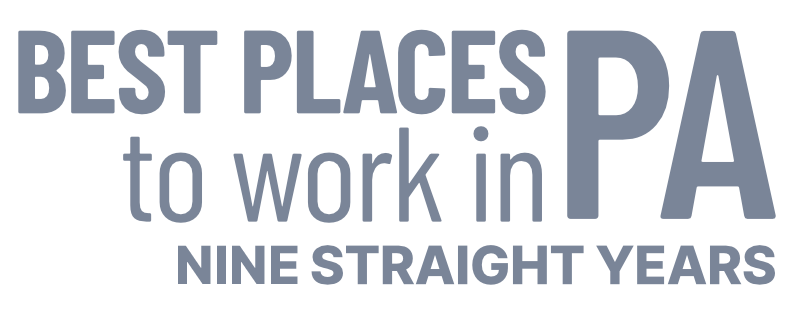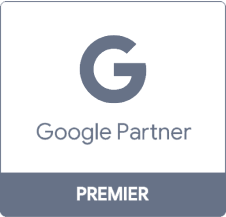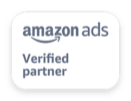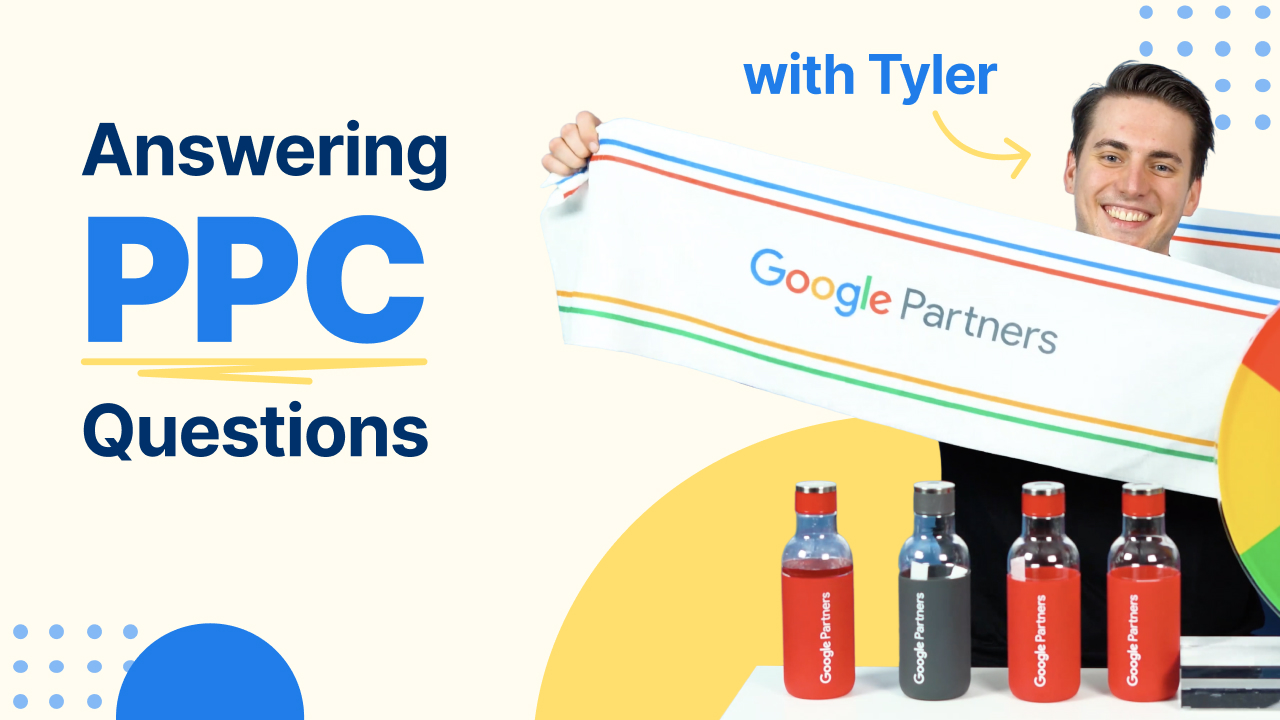10 Facts You Probably Didn't Know About PPC
The reality is, PPC is an extremely cost-effective marketing strategy that allows you to spend only what your budget allows, and still get the results you’re looking for.
We’ve put together a list of 10 PPC facts to help set the record straight. We’ll show you the overwhelming benefits of entering the world of PPC, and provide you the information you need to get started on your own PPC campaign today.
If you’d like to speak with a specialist about your company’s PPC options, you can reach us at 888-601-5359.
Whether you need PPC advice in Orlando, or PPC services in Harrisburg, WebFX is here for you.
Partner with a team of ecommerce masters!
WebFX campaigns have delivered more than 14,936,451 ecommerce transactions in the last 5 years
Read the Case Studies

1. Google drives 95% of all paid search ad clicks on mobile.
This is big. The time is now to ensure that your ads are completely mobile-optimized. It’s been strongly encouraged up to this point, but it will soon be a requirement if you’re serious about competing within your industry.
Make sure that your PPC campaigns are mobile-optimized through and through, so you’re not missing out on this enormous and still-growing market.
2. Remarketing conversion rates increase over time
This one’s important because it contradicts the ideas of banner blindness and ad fatigue that are so commonly repeated. CTR on remarketing ads may still decrease over time, but the increase in conversion rate demonstrates that remarketing campaigns are well worth your time and money.
A huge percentage of website visitors will leave websites without converting in any way. Remarketing campaigns are simply a way of reminding people to finish what they’ve started, while subconsciously reinforcing your branding.
3. 52% of people who click on PPC ads call the advertiser anyway
In other words, you better have your company’s phone number prominently displayed on your PPC ad. Even better, take advantage of the click to call functionality that’s now offered by most major ad networks for your PPC marketing.
Click to call, coupled with proper campaign structure, means that you’ll basically be paying for phone calls directly to your business. If you’re still not convinced, take a look at this MarketingLand study that suggests inbound calls are worth 5 to 10 times more than web form leads.
4. Higher CTR = Lower CPC
The better your ad is, and the higher CTR you achieve, the less you’ll be paying per click. In fact, Searchenginewatch found that for the Google Display Network, every 0.1% increase in CTR results in a 20% decrease in CPC.
Because CTR is such an important part of Google’s Quality Score metric for all ads, the message here is clear: play by the quality control rules, and you’ll be rewarded with more, cheaper clicks.
5. Utilize call tracking to get the full picture
Ifbyphone performed a study in which they broke down the conversion rate of a single landing page by web form conversions and by phone call conversions. They found that measuring only web form conversions would result in a perceived conversion rate of 3.17% – a clear sign of an underperforming landing page.
However, by implementing call tracking and measuring the page’s phone conversion rate as well, they saw the total conversion rate jump up to 8.45% – a much more respectable conversion rate, and an indication that the landing page is actually performing quite well.
Had they not measured the phone conversion rate through call tracking, they likely would have scrapped or revamped the landing page because its web form conversion rate seemed so low.
WebFX has proprietary call tracking software that can help you track phone call conversions.
6. The top 3 paid ad spots get 46% of the clicks on page
You could have the best SEO strategy on the planet, and paid clicks will still heavily outnumber your organic clicks.
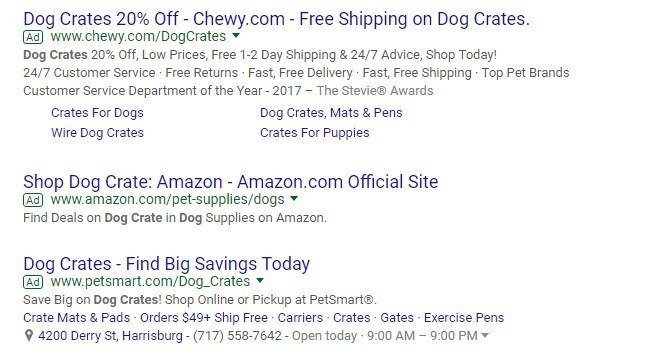
There are two takeaways from this statistic. First, it’s imperative to keep your Quality Score up, because ads with higher Quality Scores tend to appear in higher positions on-page.
Second, this statistic demonstrates why you should invest in PPC even if you’re thoroughly content with your SEO efforts. Let’s say you’re ranking for the top 3 positions for a given keyword. What if you had ads in the top 3 paid ad spots as well? You’d essentially have control over the top 6 results for that keyword.
While the top 6 spots may be a lofty goal, the idea that PPC + SEO = more search visibility holds true no matter what.
7. Negative keywords are incredibly important
You should look at negative keywords as another layer of demographic targeting. You can truly shape the audience your ad will be served to through the use of negative keywords.
For example, adding the negative keywords “free,” “cheap,” etc. to a campaign for a certain type of product will ensure you’re not wasting ad impressions on people who are unlikely to make a purchase.
One study found that the inclusion of negative keywords alone increased a campaign’s CTR from 0.97% to 1.33%, which then saw an overall conversion rate increase from 1.12% to 1.53%.
8. PPC isn’t affected by algorithm updates
Your PPC, paid search, results are much “safer” than your SEO results can be. If you have a successful PPC campaign running, it won’t be arbitrarily knocked out of orbit by the algorithm updates that so frequently affect organic rankings.
Short of getting your Google Ads account suspended, the only “algorithm” that affects your PPC results is the very accessible Quality Score metric.
In other words, it’s much easier to “play by the rules” and succeed with PPC than it can be with SEO. It’s extremely useful to allocate some of your budget to PPC campaigns, because you’ll have them to fall back on if your site ranking is every heavily affected by an algorithm update.
9. Roughly half of web users can’t tell the difference between paid and organic search results
It’s easy to fall into the trap of thinking, “who even clicks on Google Ads anyway?” Well, the numbers are in, and apparently up to half of all search engine users cannot tell the different between paid search and organic search results.
This means that all of those people will see the PPC ads displayed on top of organic results, and assume they’re organic search results. That alone is enough reason to get started with PPC. To those users, you’re essentially able to pay for the top “organic” position.
10. PPC doesn’t have to be expensive
Many marketers are under the impression that PPC campaigns require enormous budgets. This is simply not true. PPC benefits can be seen at any level of budgeting, often with very high margins. Google itself operates under the “conservative assumption” that businesses make an average of $2 for every single $1 they spend on Google Ads.
While it’s often true that largest budgets allow you to scale campaigns to higher levels of profitability, you’re more than able to see results with PPC at nearly any level of budgeting.
Ready to get started with PPC?
All businesses should allocate an experimental PPC budget, at the very least. If you do so, odds are you’ll quickly see the benefits and want to incorporate it as a permanent part of your overall marketing strategy.
PPC campaigns do require time spent creating and optimizing, however. If you find yourself too busy to head up your company’s PPC efforts, let WebFX help. Our team of Internet marketers has years of experience running successful PPC campaigns for our many clients, and would love the chance to help your company grow too. Contact us today for a free quote, or more information!
Table of Contents
- 1. Google Drives 95% of All Paid Search Ad Clicks on Mobile.
- 2. Remarketing Conversion Rates Increase over Time
- 3. 52% of People who click on PPC Ads call the Advertiser Anyway
- 4. Higher CTR = Lower CPC
- 5. Utilize Call Tracking to Get the Full Picture
- 6. the Top 3 Paid Ad Spots Get 46% of the Clicks on Page
- 7. Negative Keywords Are Incredibly Important
- 8. PPC Isn’t Affected by Algorithm Updates
- 9. Roughly Half of Web Users Can’t Tell the Difference Between Paid and Organic Search Results
- 10. PPC Doesn’t Have to Be Expensive
- Ready to Get Started with PPC?
Related Resources
- 11 PPC FAQs That Every New Advertiser Should Ask
- 18 Ad Copy Examples That Grab Viewers’ Attention
- 19 Must-Follow PPC Trends to See Success in 2024
- 25 Negative Keywords Every PPC Campaign Should Use
- 3 Rehab Center PPC Tips: New LegitScript Certification Process
- 4 Ways to Generate Leads with PPC Ads
- 5 Best PPC Tools for PPC Management, Testing, & More
- 5 Common PPC Mistakes
- 5 Easy Steps for How to Write an Ad Like a Pro
- 6 Benefits of Remarketing Your Business Needs to Know
Marketing Tips for Niche Industries
- 3 Benefits of PPC for Swimming Pool Companies
- 3 PPC Benefits for Sign Companies
- 3 PPC Best Practices for Heavy Equipment Companies
- 3 PPC Tips for Casinos
- 3 Reasons Oil and Gas Companies Should Use PPC
- 4 Astounding Benefits of PPC Advertising for Wineries
- 4 Benefits of PPC for Fortune 1000 Companies
- 4 PPC Benefits for Service Industry Businesses
- 4 PPC Perks for Private Investigators
- 5 Benefits of PPC for Jewelers

